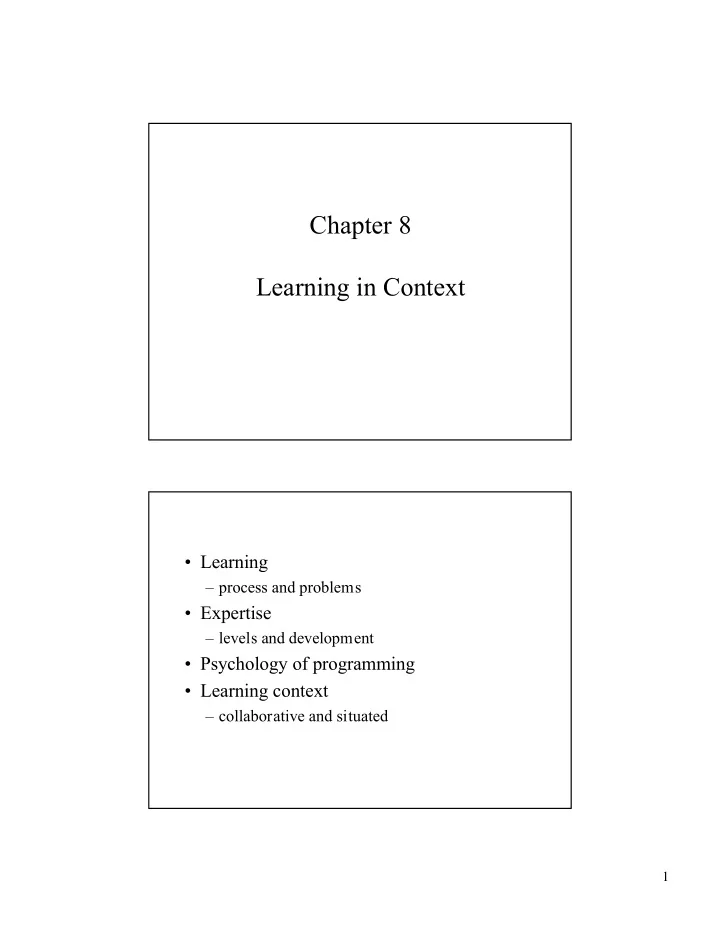

Chapter 8 Learning in Context ¥ Learning Ð process and problems ¥ Expertise Ð levels and development ¥ Psychology of programming ¥ Learning context Ð collaborative and situated 1
Learning as an active process ¥ Learning through analogy Ð using familiar situations Ð word processor versus typewriter ¥ Ad hoc reasoning Ð explanations for unexpected events ¥ Learning from errors Ð inhibitors such as evaluation fears Learning difficulties ¥ Learning is difficult Ð learners may blame themselves ¥ Learners lack basic knowledge Ð do not understand computer jargon ¥ Learners make ad hoc interpretations Ð learners construct interpretations ¥ Learners generalize from what they know Ð assume familiarity, consistency 2
Learning difficulties (cont.) ¥ Learners have trouble following directions Ð do not always read, follow, or understand ¥ Problems interact Ð one problem can create another ¥ Interface features may not be obvious Ð may be confused by messages and outcome ¥ Help facilities do not always help Ð do not know what to look for Two types of errors ¥ Mistakes Ð incorrect action based on incorrect decision ¥ Slips Ð unintentional error, like accidents Ð most frequent errors 3
Types of Slips ¥ Capture error ¥ Description error ¥ Data-driven error ¥ Associative-activation error ¥ Loss-of activation error ¥ Mode error Expertise ¥ Novice versus expert Ð differences in the way knowledge about a skill is structured in long term memory ¥ expert chess player stores 50,000 to 100,000 board positions in chunks ¥ novices have only a few positions and no sequences 4
Declarative and procedural knowledge ¥ Declarative knowledge Ð facts about the world Ð describing what ¥ Procedural knowledge Ð how things are carried out Ð describing how Types of programming knowledge ¥ Syntactic Ð language units and rules for combining them ¥ Semantic Ð mental model of locations, objects, actions ¥ Schematic Ð categories of routines based on function ¥ Strategic Ð techniques for devising and monitoring plans 5
Collaborative and Situated Learning ¥ Collaborative learning Ð encourages social interaction and discussion ¥ Situated learning Ð apprenticeship, limited doing Ð legitimate participation Ð social situation is important 6
Recommend
More recommend